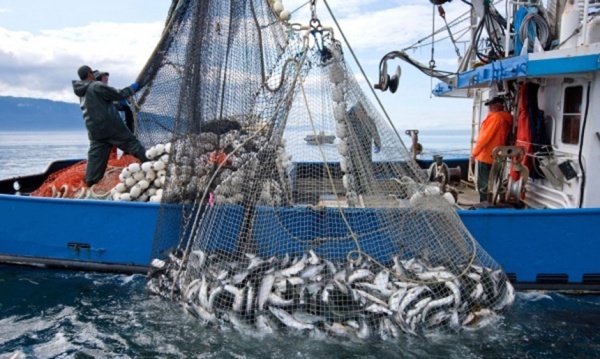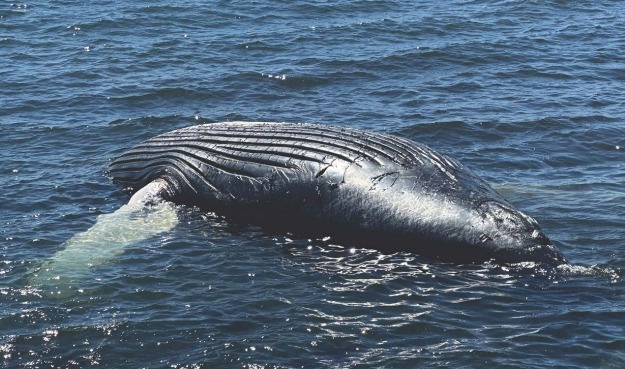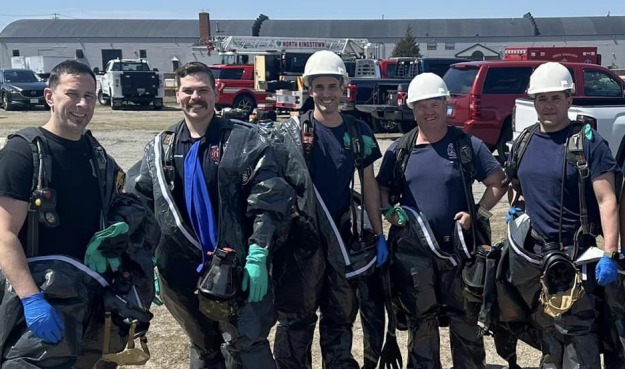Argues For a More Deliberate Approach to Commercial Fishing Regulation in Marine Monument Areas.
New Bedford, MA – Mayor Jon Mitchell was invited by the U.S. House of Representatives to submit written testimony to the House Natural Resources Subcommittee on Oversight and Investigations in conjunction with a recent Congressional hearing entitled “Examining Barriers to Access in Federal Waters: A Closer Look at the Marine Sanctuary and Monument System.”
In his written submission, the Mayor explained why the federal government’s approach to fisheries management within the recently designated marine monuments matters to New Bedford’s commercial fishing fleet–the top-grossing fleet in the nation: “The management of marine fisheries in federal waters within the Northeast Canyons and Seamounts Marine National Monument is a matter of vital importance to the Port of New Bedford, Massachusetts – America’s top-valued commercial fishing port.”
The Mayor encouraged Subcommittee members to take into account the unique role that New Bedford plays nationally in commercial fishing, saying “Our harbor serves not only the needs of the vessels that call New Bedford their home port, but also the needs of numerous East Coast vessels from North Carolina to Maine which land their catch in our port at different times during each fishing season. \The proper management of our nation’s marine fisheries is therefore crucial to the vitality of our port and our local and regional economy, but also to the nation, as we service the needs of an industry whose vessels operate up and down nearly the entirety of the East Coast.”
Mitchell noted that the Port and the City of New Bedford’s position has been consistent since 2016 when the proposal for a Northeast Canyons and Seamounts Marine National Monument originated. In the years following 2016, Mayor Mitchell has continued to argue for a more deliberate process to establish marine monuments, including providing in-person testimony before the U.S. House Natural Resources on Water, Power, and Oceans. (Copies of Mayor Mitchell’s previous 2016 testimony are available upon request.)
The Port and City maintain that marine fisheries in federal waters everywhere, including in national monuments, should be managed under the Magnuson-Stevens Fishery and Conservation Management Act (MSA), the 169-page long legal instrument governing marine fisheries management in U.S. federal waters. The MSA, originally enacted in 1976, has been amended and improved by several Congresses in its nearly 50-year history and is considered by many worldwide to be the ‘gold standard’ for fisheries management.
The Mayor explained how the current commercial fishing ban imposed under the authority of the Antiquities Act contrasts with the science-based, inclusive regulatory processes established by Magnuson-Stevens. The Mayor described how the current ban in marine monument waters creates multiple difficulties for affected fisheries, including:
• In years when highly migratory species, such as swordfish and tuna, are traversing the monument region, our longline fishermen are likely to be unable to harvest their internationally negotiated quotes.
• Harvesters targeting quid, butterfish, and other fisheries are forced to travel for hours across the monument unable to fish until they exit the far side of the monument passing schools of these species so that they can easily see in the monument waters. This wastes time and fuel, and unnecessarily increases their carbon footprint.
• Although the Atlantic scallop industry (the most valuable federally managed wild-caught fishery in the nation) does not operate in the Northeast Canyons and Seamounts Marine National Monument, the commercial fishing ban is moving the offshore lobster industry from the region and leaving them nowhere to go except onto scallop grounds, creating a potential for conflict between fisheries.
The Atlantic red crab industry, which is sustainable and has brought an underutilized species to market, relieving pressure on over-exploited species can no longer be harvested in areas where they have been successfully harvested for decades.
Mayor Mitchell summarized his view for the Subcommittee members, saying “For all of these reasons, I remain convinced that fisheries management under existing Magnuson-Stevens authority, is the most sensible approach to managing fishing activity within the Northeast Canyons and Seamounts Marine National Monument.”
 New Bedford Guide Your Guide to New Bedford and South Coast, MA
New Bedford Guide Your Guide to New Bedford and South Coast, MA









